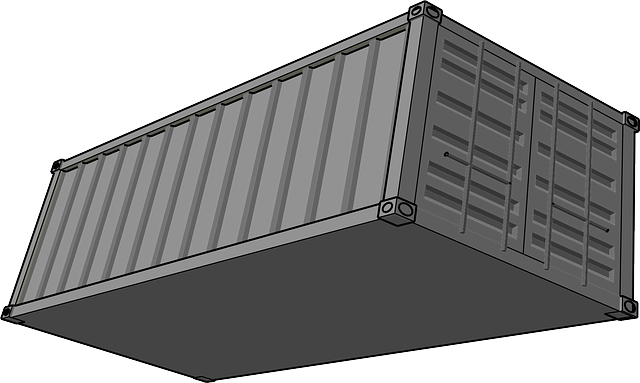Box truck owners must understand box truck liability coverage as a critical tool for risk management and financial protection during transport. This insurance covers legal fees, settlements, and repairs up to specific limits for property damage, injuries, or deaths caused by the vehicle. Exclusions, such as gross negligence and non-vehicle-related damages, should be carefully considered when selecting plans. Best practices include regular maintenance, driver training in safety protocols and load securing, and thorough pre/post-delivery inspections. Businesses should adopt strategic practices like optimizing routes, employing real-time tracking systems, and prioritizing comprehensive insurance policies to mitigate risks and slash transport costs, ensuring operational efficiency and stability.
In today’s fast-paced delivery landscape, expert policies for transport vehicles are essential. This article delves into critical aspects of fleet management, focusing on box truck liability coverage, its scope, and exclusions. We explore best practices for maintaining safe and reliable delivery vehicles to minimize risks and costs. Additionally, we examine comprehensive insurance options tailored for efficient delivery fleet operations. Understanding these strategies ensures optimal protection and performance in the dynamic world of logistics.
- Understanding Box Truck Liability Coverage: What It Covers and Exclusions
- Best Practices for Maintaining Safe and Reliable Delivery Vehicles
- Strategies to Minimize Risks and Costs Associated with Transport Operations
- Comprehensive Insurance Options for Delivery Fleet Management
Understanding Box Truck Liability Coverage: What It Covers and Exclusions

Box truck owners and operators must have a clear understanding of their liability coverage, as it plays a pivotal role in protecting them from potential risks and financial burdens associated with accidents or incidents during transport. Box truck liability coverage is designed to shield businesses and drivers from claims related to property damage, injuries, or deaths caused by the vehicle. This type of insurance offers a safety net, ensuring that costs associated with legal fees, settlements, and repairs are covered up to specific limits.
However, it’s crucial to note that this coverage has its exclusions. Common exclusions include damages arising from gross negligence or intentional acts, certain types of environmental hazards, and any loss or damage not directly related to the operation of the box truck. Understanding these exclusions is essential as they define the boundaries of protection offered by the policy. By being aware of what’s covered and what’s excluded, business owners can make informed decisions when selecting their insurance plans, ensuring adequate protection for their investments and operations.
Best Practices for Maintaining Safe and Reliable Delivery Vehicles

Maintaining safe and reliable delivery vehicles is paramount for ensuring smooth operations and mitigating risks. Best practices include regular vehicle maintenance checks, adhering to manufacturer recommendations, and promptly addressing any mechanical issues. Proper training for drivers on safety protocols, defensive driving techniques, and load securing methods is equally crucial. This involves using appropriate equipment like wheel chocks, secure tie-downs, and cargo nets to prevent shifting during transit.
Additionally, businesses should implement robust inspection procedures before and after each delivery run. This includes verifying tire pressure, fluid levels, lighting functionality, and brake performance. Furthermore, staying updated with local regulations regarding vehicle emissions and safety standards is essential. Opting for box truck liability coverage can provide financial protection against unforeseen events, ensuring business continuity and peace of mind.
Strategies to Minimize Risks and Costs Associated with Transport Operations

To minimize risks and costs associated with transport operations, companies should implement strategic practices tailored to their specific needs. One key area is ensuring comprehensive box truck liability coverage, which protects against financial losses due to accidents, damages, or legal claims. This includes regular maintenance checks to prevent mechanical failures and driver training programs that emphasize safety protocols and defensive driving techniques.
Additionally, optimizing routing and scheduling can significantly reduce operational costs. Efficient routes minimize fuel consumption and wear on vehicles, while well-planned schedules ensure drivers are utilized effectively, avoiding idle time. Implementing real-time tracking systems also enhances visibility into fleet performance, enabling proactive measures to prevent accidents and delays.
Comprehensive Insurance Options for Delivery Fleet Management

In the dynamic landscape of delivery and transport, fleet management involves more than just maintaining vehicles; it entails safeguarding against unforeseen events that could cripple operations. Comprehensive insurance options play a pivotal role in this regard, offering robust protection for delivery fleets, including box trucks. These policies go beyond basic liability coverage, encompassing a wide range of risks specific to the industry. By availing of such comprehensive insurance, fleet managers can ensure their assets and drivers are shielded against potential losses, from accidents and damages to theft and vandalism.
Box truck liability coverage stands as a cornerstone within these comprehensive insurance plans. It protects not only the physical vehicle but also the valuable cargo it carries. This is particularly crucial given the sensitive nature of delivery operations, where delays or damage can significantly impact customer satisfaction and business reputation. With the right insurance policy, companies can mitigate financial risks, foster operational stability, and continue delivering services efficiently.
In conclusion, implementing expert policies for delivery and transport vehicles is paramount in ensuring safety, reliability, and cost-efficiency. By understanding box truck liability coverage, adopting best practices for vehicle maintenance, minimizing risks, and exploring comprehensive insurance options, businesses can navigate the complexities of fleet management effectively. These strategies not only protect against potential liabilities but also contribute to a smoother, more sustainable operation.
